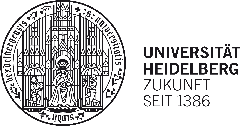Universities in Germany


#1
QS Rank



#72
QS Rank


#146
QS Rank



#68
QS Rank


#60
QS Rank




#123
QS Rank



#121
QS Rank

Welcome to Germany!
The Federal Republic of Germany lies in the heart of Europe. Germany is one of the world’s strongest economies and offers an innovative research and education landscape. At the same time, it has a dynamic cultural scene. Germany is the European Union’s most populous nation and is surrounded by nine neighboring countries. Germany is a modern and open-minded country with high quality of life, influenced in many ways by multinational diversity. Berlin is the capital of Germany.
Studying Abroad in Germany
Innovative ideas have strongly shaped Germany’s past and will surely continue to do so in the future. Germany has produced a long list of revolutionary inventions, such as the automobile, the airbag, X-ray technology, Aspirin, the computer, the chip card and the MP3 data compression format. Science and research have a long tradition in Germany and are still highly valued today. Germany isn’t called the “land of poets and thinkers” for nothing. In addition to such illustrious figures as Kant, Hegel, Adorno, Goethe, Heine, Brecht, Bach, Beethoven and Brahms, many contemporary German designers, artists, actors, musicians and athletes are famous around the world.
Study in Germany
In Germany there are 399 institutions of higher education, of which 111 are entitled to award doctorates, and around 230 universities of the applied sciences. Courses at German Higher Education Institutions cover more than 400 disciplines, and many institutions offer courses taught in English that lead to internationally recognized degrees, including Master’s and PhD. With around 340,000 foreign students enrolled at German institutions of higher education, Germany has the fifth highest number of foreign students in the world. German universities do not charge tuition fees, neither from German nor from the international students. Some 41 German universities feature in the Global Top 400 of the Times Higher Education World University Rankings 2016-2017, of which 22 are in the Top 200 and seven in the Top 100 – the highest ranked German Universities being Ludwig-Maximilians-Universitat Munchen at 30, Heidelberg University at 43, and Technical University of Munich at 46.
Scholarships to Study in Germany
There are a few reasons why you should study in Germany. Study in Germany offers excellent learning and research experience, and Germany universities ranking among the best in the world. You will earn an internationally renowned degree, giving you excellent prospects on the global labour market. By studying in Germany you will be provided by outstanding academic programmes, while universities of applied sciences offer a range of attractive, practice-oriented options. Many study programmes combine theory and practice. This will greatly facilitate your career start. In Germany, you can make the most of yourself. Here you can develop your intellectual abilities and personal skills freely and reach your full potential. The government of Germany also offers various scholarships programmes for international students such as Development-Related Postgraduate Courses (EPOS) and Helmut-Schmidt-Programme: Master’s Scholarships for Public Policy and Good Governance (PPGG), Sustainable Water Management: Study Scholarships and Research Grants for Foreigners, and Doctoral degree & Post Doc scholarship programs.

